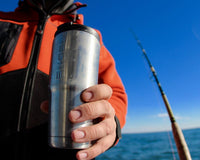“In a civilized and cultivated country, wild animals only continue to exist at all when preserved by sportsmen,” -
Theodore Roosevelt, the founder of the National Wildlife Refuge System and hunter.
Hunters and Anglers are among some of the most ardent conservationist around, according to the U.S. Fish and Wildlife Service, funding many of our nations conservation efforts to help maintain species populations and protect habitats for wildlife.
Through the Federal Aid in Wildlife Restoration Act for instance, revenues generated from hunters by excise tax on firearms, ammunition and other related equipment goes directly to use for wildlife conservation projects, hunter education and for the up keep of park recreation areas. Hunters in general are also more aware of their impact on the environment, taking care to pack in and pack out, guard against wildfire and obey hunting seasons and limits.
Anglers also pay a key role in conservation, by using selective fishing methods adapted to the marine environment to avoid accidental catches, by practicing catch and release, and most importantly by picking up any trash, properly disposing of fishing line and never dumping pollutants like gasoline or oil in the water.
Revenues from fishing licenses are also used by conservation agencies to enhance water quality and map and maintain fish habitats, to educate and recruit new anglers to the sport, and for long term studies that help with conservation for years to come.
All these factors and many more are why Hunters and Anglers continue to be some of the most important partners in environmental protection in the U.S.






